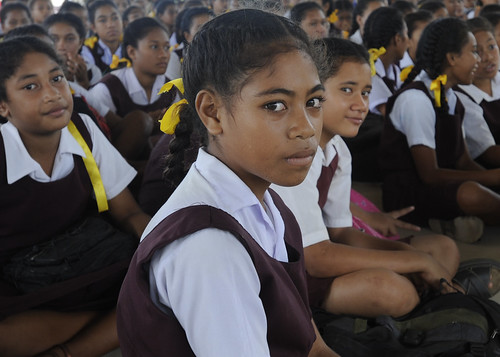In response to low academic rates, the Papua New Guinea (PNG) government decided to scrap the Outcome-Based Education (OBE) system and return to the more traditional Objective-Based curriculum.
The OBE system is designed to facilitate self-learning approaches. Schools are responsible for setting relevant, criterion-based outcomes, where assessment focuses on individual skills and performance. In the traditional system, learning is based relatively on educational ‘inputs’ (i.e. teaching styles, textbooks, number of hours in school), in which students are ranked in comparison to one another.
 Although OBE sounds more appealing, it appears to be difficult to implement effectively. For instance, Western Australia abandoned their OBE curriculum in 2007 after being criticized for designing ‘vague’ objectives that were too difficult to measure. South Africa similarly dropped its use of the OBE system back in mid-2010.
Although OBE sounds more appealing, it appears to be difficult to implement effectively. For instance, Western Australia abandoned their OBE curriculum in 2007 after being criticized for designing ‘vague’ objectives that were too difficult to measure. South Africa similarly dropped its use of the OBE system back in mid-2010.
PNG educational experts believe the real problem arises from a lack of specialized resources, such as teacher-written workbooks and lesson plans that support the use of the OBE curriculum. “A lot of teachers are teaching the curriculum as they would in the old system. We have to provide full in-service kits that can provide cost-effective teacher training or in-service packages for all teachers,” said educator Michael John Uglo.
Some argue that the OBE curriculum has simply taken too long to develop. Unfortunately, the process of switching curriculum strategies now may take another two to three years to complete.
Creative Commons Love: U.S. Pacific Fleet on Flickr
Written by Alice Formwalt
